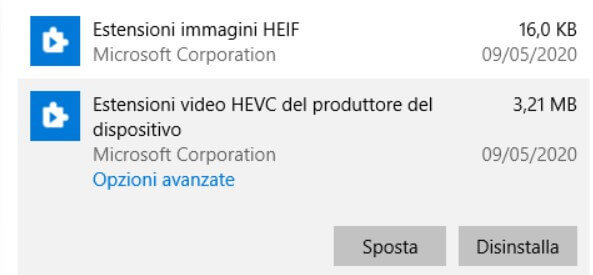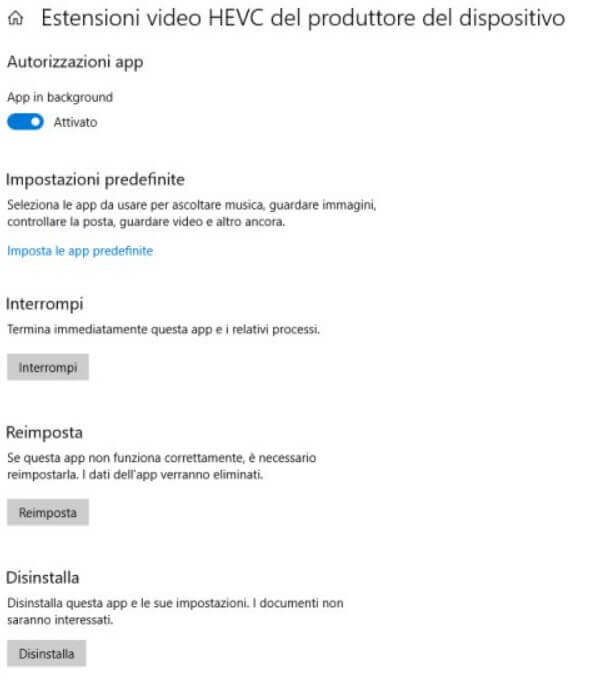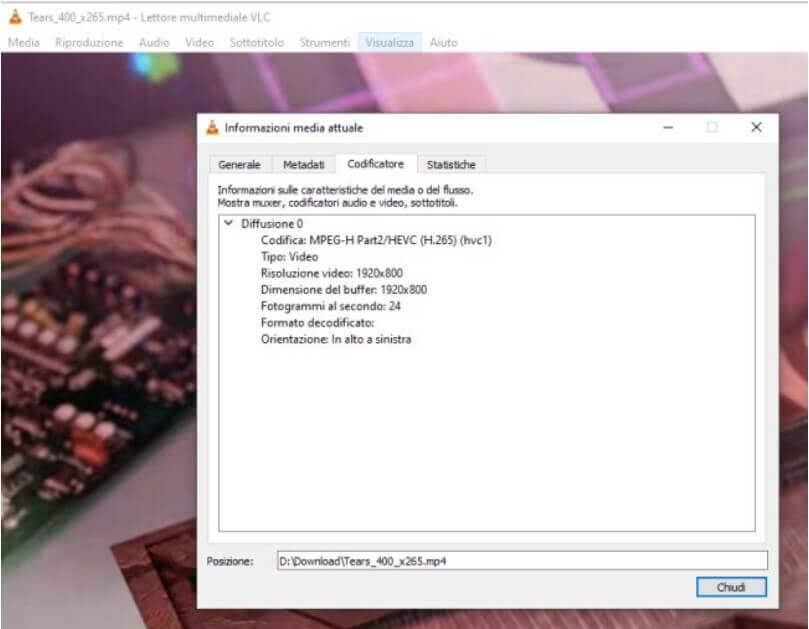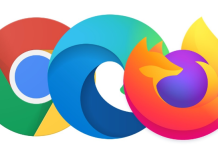What are the two formats HEIC for images and HEVC for videos, and how to manage them in Windows 10?
In 2017, the HEIC format became the one used by default on Apple iOS devices. On the Android side, Google Photos allows you to open HEIC images if uploaded using an iOS device.
We talked about the main features of HEIC in the article What is HEIF (or HEIC). What are the novelties of the new format for images? It was also known as HEIF (High-Efficiency Image File Format ). It was defined in 2013 to replace the JPEG format, dating back to 1992 in the first version.
HEIC is in turn based on the HEVC (or H.265) video compression standard and allows you to outperform JPEG in terms of results (file size and image quality) thanks to the use of more advanced algorithms.
As indicated in the article mentioned above – in addition to allowing double quality compared to JPEG for the same space occupied -, HEIC supports transparency (alpha channel), allows you to insert multiple images in the same file (with the possibility of creating animations), and to note – always in the same file – all the changes made on the image so that they can be canceled at any time.
HEIC is a “container” format that then uses, as mentioned, the H.265 codec to compress information and save it as an image.
Google has been using HEIC in Android since 2018 when Android 9 Pie was released, but, for example, on the web, it is pushing for the universal adoption of its WebP format built from the VP8 video codec.
How to open HEIC images and HEVC videos in Windows 10
To directly open HEIC format images from iOS devices with Windows 10, simply use the Photos app built into the operating system.
Starting with version 1809 (October 2018 Update), Windows 10 is already capable of handling photos in HEIC format (press Windows + R, then type winver to check the version of Windows 10 you are using). You no longer need to install any additional software components.

This is an example of a HEIC image with a 1440×960 pixel resolution of approximately 280KB.
Similarly, HEVC (High-Efficiency Video Coding ), also known as H.265, is a standard for video compression also launched in 2013 and a benchmark for major online streaming platforms such as Netflix, YouTube, Twitch, and similar.
Compared with its predecessor H.264, HEVC compresses double the data with a halved bitrate: the high definition quality is maintained while the “space” occupied is reduced by half (some examples of HEVC files are available at this address; download x265 files ). We talked about it in the HEVC or H.265 article: main differences compared to H.264. Ahead of AV1 explaining that the next step will most likely be migrating to AV1, derived from Google’s VP9 codec.
HEIC and HEVC files are currently not manageable using major web browsers.
If you have problems playing HEIC and HEVC content from Windows 10, just download – referring to the Microsoft Store – the following free components:
– HEIC / HEIF
support HEVC support

Suppose you are having trouble handling HEIC and HEVC format files with Windows 10. In that case, we suggest typing Apps and Features in the OS search box and then looking for HEIF Image Extensions and HEVC Video Extensions from your device manufacturer. By clicking on these items, then on Advanced Options, and finally on Reset, you can restore both components’ functioning.

Software like VLC allows not only to open HEVC files but also to convert them to this format.

By clicking on Tools, Encoder Information, you can check in detail the container format, codec, and other technical specifications of each video played with VLC.
The 10-bit HEVC standard will also be used for digital terrestrial broadcasting in Italy starting from June 2022: DVB T2, what it is, and what changes with the new technology.

A tech-savvy writer with a knack for finding the latest technology in the market, this is what describes John Carter. With more than 8 years of experience as a journalist, John graduated as an engineer and ventured soon into the world of online journalism. His interest includes gadget reviews, decoding OS errors, hunting information on the latest technology, and so on.













